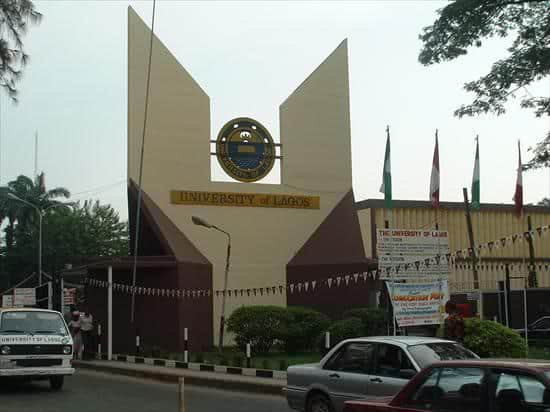Editorial
Fee Hike: Lest 50% Of Undergraduates Abandon Their Education

The President of the Academic Staff Union of Universities (ASUU), Prof. Emmanuel Osodeke, is not one given to garrulity, neither is he the type that will make some outlandish claims just to hug the limelight. It is on this score that Nigeria must accord due attention to his recent warning that up to 50 percent of students in the country’s public universities may drop out of school within the next two years if the Nigerian government doesn’t stop the arbitrary hike in university fees.
The union leader, while appearing in a national television programme, said, “If nothing is done about these heavy fees being introduced by schools all over the country, in the next two or three years, more than 40 to 50 percent of these children who are in school today will drop out.” More troubling is Osodeke’s warning that these undergraduate dropouts would end up as willing tools in the hands of those who want to make the “country ungovernable”. This will no doubt add to the intractable security challenges the country is currently faced with.
At the outset of the new academic year, various universities in the country hiked their fees by 100 to 200 percent. They blamed the development on poor government funding of tertiary education and rising inflation in the country, which is over 22 percent. For instance, the Federal University, Dutse, announced a 200 percent hike in its fees. It said, however, that payments can be made in two installments. From the old fees of N37,000, returning students were required to pay N97,000 plus other sundry charges. The University of Maiduguri school fees that use to be N29,830 were jacked up to about N74,000 with the registration fee at the university raised to N58,000. Fees for medical students spiked to a whopping sum of N252,500 for new students, and N233,000 for returning students. New students in the Faculty of Law are expected to pay N124,500 while returning students will pay N105,000. Medical students at the Ekiti State University (EKSU), Ado Ekiti, are to pay as much as N750,000, while the lowest fee at the institution is fixed at N200,000. The National Open University of Nigeria isn’t left out as undergraduates are expected to pay N55,000 instead of N36,000, while postgraduate students are charged between N35,000 and N61,000.
Students of the University of Lagos were so distraught by the astronomical increase in their fees that they staged two demonstrations within one week. This was after the Vice Chancellor announced an increase in tuition from N19,000 to N100,750 for non-lab/studio courses, N140,250 for lab/studio courses, and N190,250 for medical students. Following the protests and a meeting between the UniLag management and the National Association of Nigerian Students (NANS), the obligatory fees for freshmen were reviewed from N126,325 to N116,325 for courses without Lab/Studio and from N176,325 to N166,325:00 for Courses with Lab/Studio. The obligatory fees for returning undergraduate students were reviewed from N100,750 to N80,750 for courses without Lab/Studio; N140,250 to N120,250 for courses with Lab/Studio; and from N190,250 to N170,250 for medical/pharmacy students and students in health professions. There were equally slight reductions in the Hostel fees.
It’s instructive that these all-out protests by the students who were joined by their peers from other universities could only yield a 5 to 20 percent reduction. This indicates that the universities are forced by circumstances beyond their control to make these increments in fees. It can only be imagined what big universities like UNN, UniIbadan and ABU can do with the paltry 10 to 11 million monthly allocations they get from the federal government. As it stands the entire education sector only gets a mere 3.8 percent budgetary allocation. Little wonder the rot and fallen standards in Nigeria’s education system. While the government can continue claiming to be broke, its priorities are highly questionable. Of course, what is allocated to education pales into insignificance when compared with what is spent on politicians. It is therefore on this basis that Naija News not only demands a cessation of hike in tuition but calls for the restoration of the original fees payable by undergraduate students.
It is a known fact that even when the fees were as low as N20,000, many a student still couldn’t afford it and had to drop out at some point. This soaring of fees in public universities runs afoul of Chapter 2, Section 18 of the revised 1999 Constitution which stipulates that government should provide adequate and equal educational opportunities for Nigerians. That Chapter 2 of the country’s Constitution is none justiciable doesn’t mean that the government should abdicate its responsibility in this most cavalier manner! Those currently running the government must work hard and make sacrifices that will allow today’s students to enjoy even if a fraction of what they enjoyed in their days. According to the ASUU President, “In the 60s and 70s when I was a student, the government was paying me for being a student. Let’s have an environment where the children of the poor can have access to education.” This newspaper couldn’t agree more!
It is actually in the interest of the government to invest in human capital development. Such a wise decision is mostly responsible for the outstanding success of India, Singapore and China whose nationals are highly sought after in advanced countries of the world to head Bluechip and Fortune 500 companies. Diaspora remittances from these eggheads greatly benefit their home economies. This is not to mention the huge financial inflows generated from educational tourism. With the current appetite for migration, this hike in fees further fuels the passion and does not bode well for Naija News. We therefore demand that the Tinubu administration does what it can to ensure that the ASUU President’s prediction doesn’t come to pass. Corporate organizations also have a role to play in this by instituting endowment programmes and making the funding of tertiary institutions an integral part of their corporate social responsibility. After all, these institutions incubate their future employees.












